Short or long arm cast
1. Introduction
This is a rare injury.
If there is diagnostic doubt, screening by image intensification can be useful.
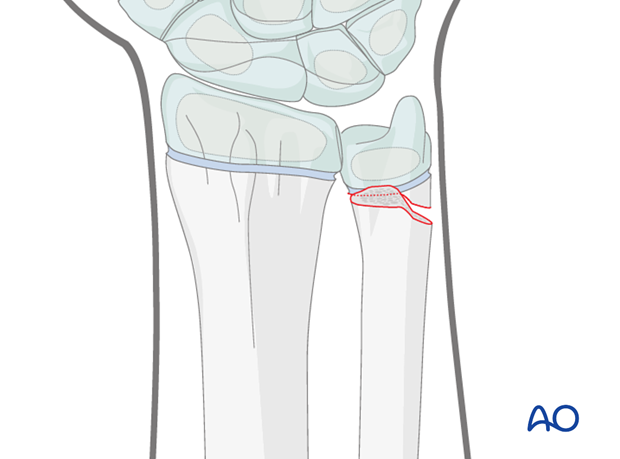
2. Short arm cast
General considerations
The majority of these fractures can be managed with a short arm cast. The operator should determine the stability of the fracture. If it is unstable with a tendency to displace a long arm cast is preferred. The purpose of the cast is to provide symptomatic relief during the period of fracture healing.
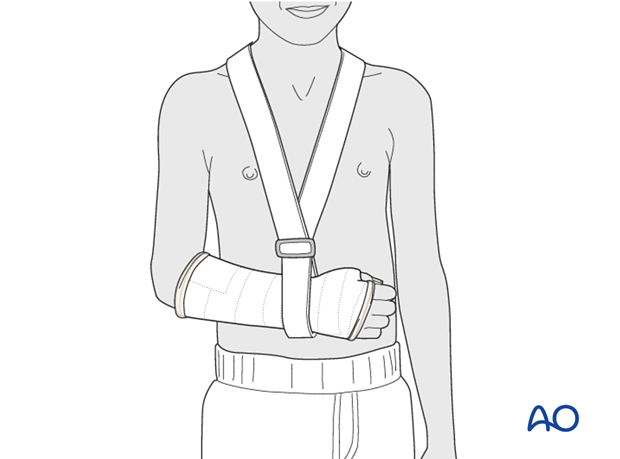
Splitting the cast
If a complete cast is applied in the acute phase after injury, it is safer to split the cast down to skin over its full length.
The cast may be split along the ulnar border or radially according to surgeon preference and/or the presence of any associated soft tissue compromize.
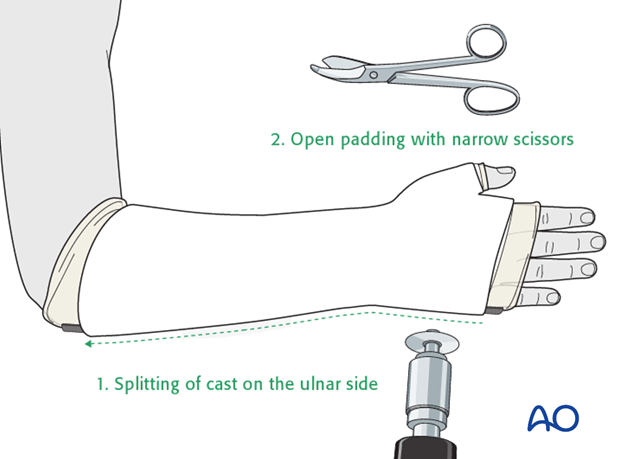
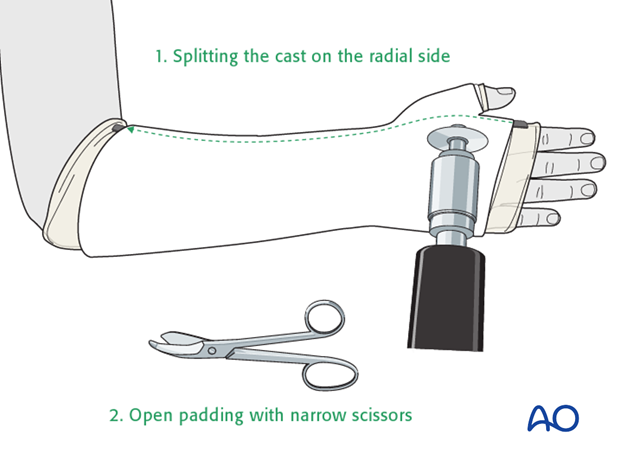
3. Long arm cast
General considerations
A long arm cast should always be used where it is necessary to control forearm rotation in order to prevent fracture displacement. In very young and in noncompliant children, a long arm cast is preferable even if a short cast would otherwise be appropriate
The long arm cast is applied according to standard procedure:
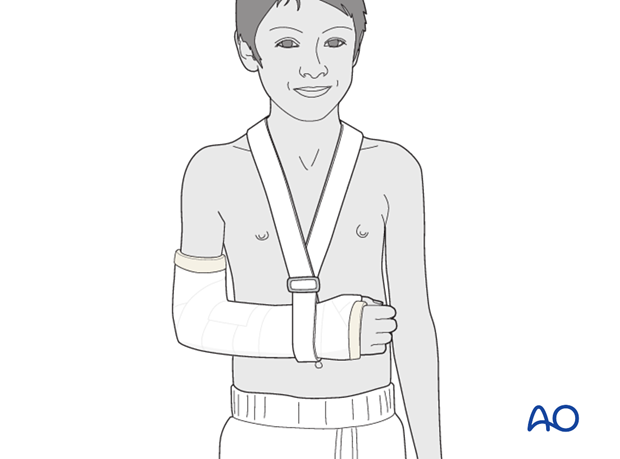
Splitting the cast
If a complete cast is applied in the acute phase after injury, it is safer to split the cast down to skin over its full length. The cast may be split along the ulnar border or radially according to surgeon prefernece and/or the presence of any associated soft tissue compromize.
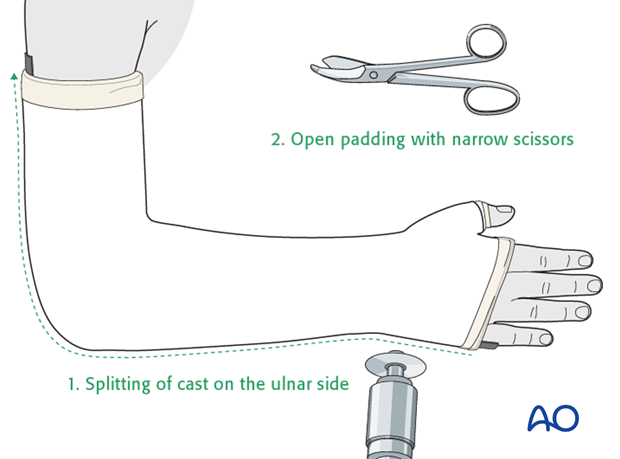
4. Aftercare
Tight cast
Further swelling in a restricting cast can cause pain, venous congestion in the fingers and occasionally a compartment syndrome.
For this reason any complete cast applied in acute phase should be split down to skin.
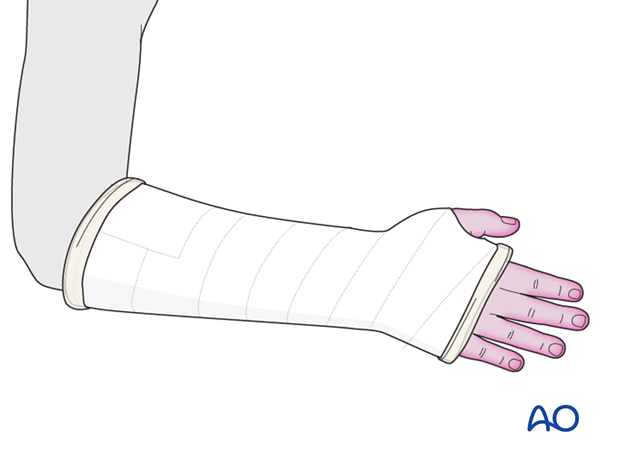
Parents/carers should be instructed how to detect circulatory problems by pressing and releasing the fingertips and watching if the blood flow/color returns to normal (capillary refill), compared to the opposite hand.
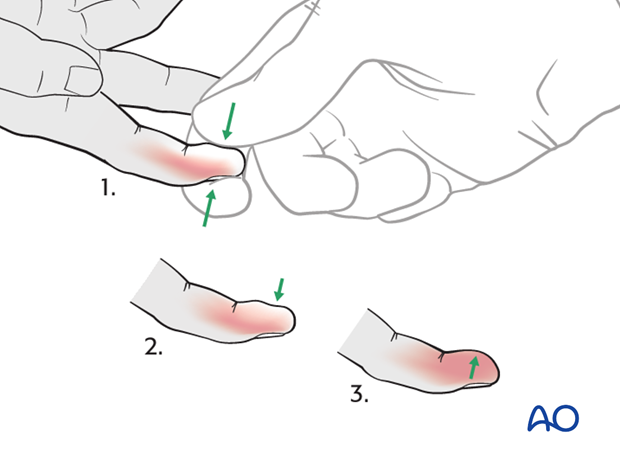
Compartment syndrome
Compartment syndrome is an unusual but serious complication after the application of a complete cast and can be difficult to diagnose, especially in younger children. Neurological signs appear late and the main sign is excessive pain on passive extension of the fingers.
It is important to make sure that the parents/carers are aware of the risk of compartment syndrome.
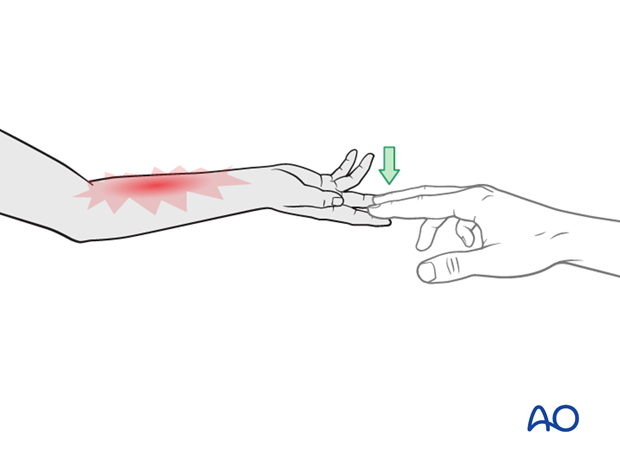
The parents/carers and patient should be informed to take note of increased pain and/or unresponsiveness to normal painkillers.
They should know that this may indicate serious complications. It is important for them to detect these signs as early as possible and report them urgently to the surgeon/nurse by telephone, or to attend the Emergency Room (ER) without delay.
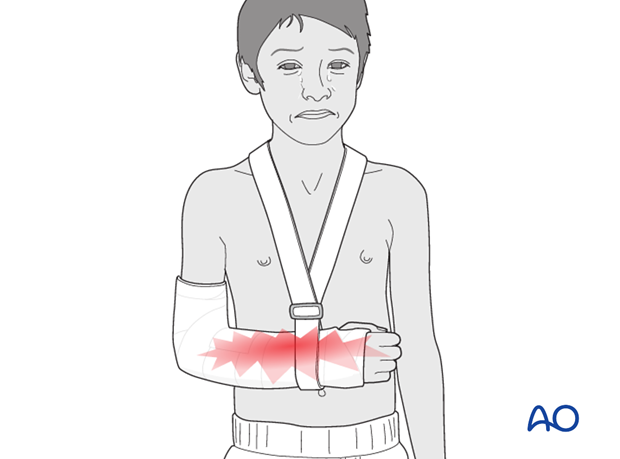
Nerve compression is an occasional complication and the signs include:
- Sensory deficits (numbness)
- Weakness of active finger movement
- Paresthesia (tingling)
Cast care
If a normal plaster of Paris cast is used, it is important to keep the cast clean and dry in order to maintain the reduction.
When the swelling has reduced, the cast can become loose. The loss of support can result in loss of reduction.
In this circumstance, the parents/carers are advised to return to the healthcare provider.
Follow-up x-rays
Depending on the fracture pattern, the age of the child and the method of treatment, the patient has to return for follow-up x-rays to monitor the fracture position.
X-rays taken for fracture position can be taken with cast in place. Any x-rays to assess the state of bone healing must be taken without the cast and correlated with clinical examination.
In most cases, it is conventional to obtain follow-up x-rays after reduction to ensure that the position is maintained.
In general, in the child below 5 years of age, the follow-up is usually about 4-5 days after reduction. In the older child with a potentially unstable fracture, an x-ray would normally be taken at 7-10 days.
Further follow-up x-ray is a matter of clinical judgement, the responsibility of the treating surgeon, and tends to be longer in older children.
For complete fractures of the metaphysis, redisplacement after reduction is not uncommon. It is therefore, important to take early follow-up x-rays in order to detect a possible redisplacement.













